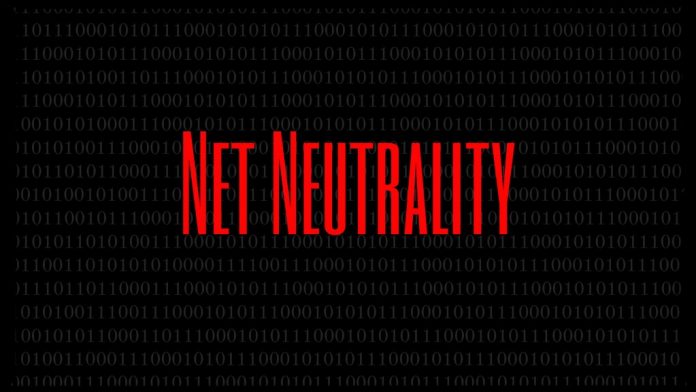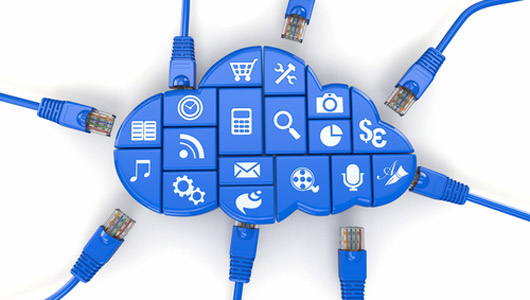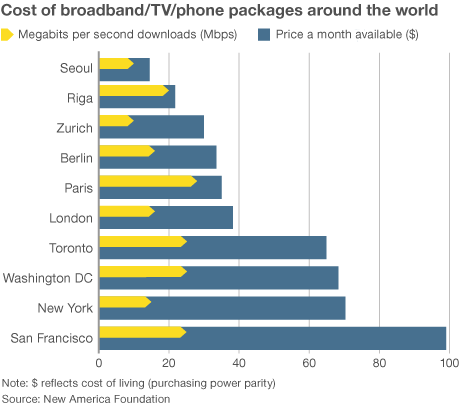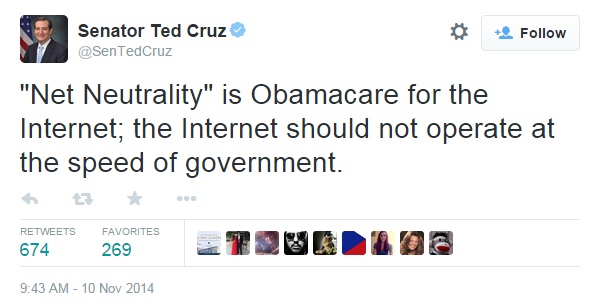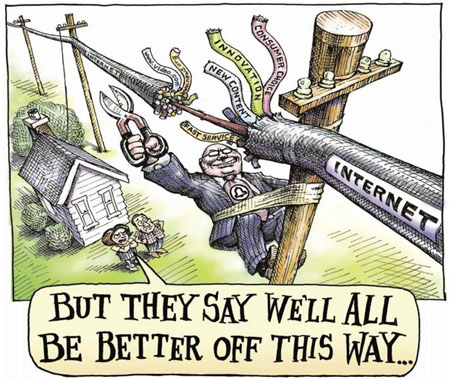Our Constitution, which acts as the standard for political and social policies, states, “We the people,” and is followed by the rest of the preamble describing a basic understanding as to how our nation as a whole should be run. It focuses on the idea that the common people of the United States of America have the right to dictate and control their government, thereby insuring them the hope of obtaining and keeping basic rights that are thought to be insured to them by our founding fathers. One would argue that since humanity is in an age of information, two people from different sides of our planet holding a face to face conversation is a given right that should be insured to every American. The Internet acts as a highway of knowledge and opinions, not to mention entertainment and leisure. It has brought out and led, in my opinion, to some of the best innovations in the past decade. So let me ask the average American one question: Do you believe the government has the right to cap and/or take away this right that acts as the doorway to a greater understanding and connection to the rest of the world?
Net Neutrality, a term coined near the dawn of the Internet, states: that Internet service providers and governments should treat all data on the Internet equally, not discriminating or charging differentially by user, content, site, platform, application, or mode of communication. This has been the standard and backbone to the Internet when it comes to providers and consumers of their services. Yet recently, this ideal, and in some aspects this right to a free Internet, has come under attack from corporations and politicians’ political agendas.
Some Internet providers and politicians who are supported by such providers claim that data can be used to discriminate and differentiate from user to user. In other words my data and Internet required to play a match of Halo or binge watch a series on Netflix will cost more than a person who is emailing a friend or reading a politically-biased news source. In other words, what you are doing on the Internet will effect and raise the cost for you as a consumer.
Some Internet service providers claim this will allow for what they are describing as fast and slow lanes on the Internet: fast ones for highly-demanding activities such as watching Netflix or doming your friends in a match of slayer on Halo. The slow ones would be for people who aren’t demanding as much bandwidth, people who might be sending emails or reading their poetry or whatever. The thing is this would be understandable if, as a nation, we actually had high-quality Internet. According to a recent study by Ookla Speedtest the strong and proud United States ranks 31st in the world in terms of average download speeds. Quite shocking when many Americans are thought to believe we get the best “everything” while other countries such as Estonia, Hungary, Slovakia and even Uruguay have better averages than the U.S.’s measly 20.77 Mbps. The statistics are even worse on the upload side of America’s Internet speeds, which clock in at a sluggish 6.31 Mbps—a speed beaten by Lesotho, Belarus and other countries you have probably never heard of because the U.S. comes in at 42nd in the world.
As one can see, this justification of giving consumers fast and reliable Internet through fast and slow lanes would be great if it were possible with the standards Internet providers are already giving us. We already pay unreasonable prices for crummy Internet: for example users in Seoul, South Korea, pay the equivalent of $30 a month for 1 Gigabit Internet which is 50 times faster than the national average! The price for obtaining this fast of a connection costs U.S. consumers around $300 in Los Angeles or New York according to the annual report by the New America Foundation’s Open Technology Institute. This is the outcome of a market dominated by large corporations who have a stranglehold on consumers. And after all of this, they expect us to pay more?
Some politicians, such as Ted Cruz, who just so happened to accept $47,000 in campaign funds from the telecom industry, including AT&T, Time Warner Cable, and the NCTA, believe this to be justified. He claims that “‘Net Neutrality’ is Obamacare for the Internet; the Internet should not operate at the speed of the government.” (Taken from his tweet on November 10, 2014.)
He is right when it comes to the fact that the Internet shouldn’t operate at the speed of the government; it should operate faster. This would be impossible if providers such as AT&T, Comcast, Verizon, and others got what they wanted. In reality these corporations fear the thought of the average American consumer discovering that the rest of the developed world has better services than them. They are attempting to coerce politicians to eliminate Net Neutrality under the radar before common people realize what is happening.
Yet not all politicians are against it. President Obama came out recently supporting Net Neutrality, and since I don’t always agree with his policies this was a pleasant surprise. He advised the FCC to reclassify Internet service as a utility under Title II of the Telecommunications Act. So in summary, the government as a whole isn’t out trying to cap our Internet speeds; it turns out the only ones who support this are the ones who directly benefit from funds from these corporations. The citizens also shouldn’t look at this topic from a liberal or conservative perspective; issues such as Net Neutrality can’t be observed from a political lens. Instead, the average consumer and citizen of the United States should think from an individual perspective as to how this will affect their lifestyle and budget.
Net Neutrality to me personally would greatly hurt my hopes and dreams of becoming a journalist for a company that reviews or discusses entertainment and other forms of media. I would more than likely have to take down my website I currently run and would have to pay fees for subpar Internet. The Internet provides writers, including many other students and recent college graduates, a place to voice their opinion to the masses. It allows one to be heard, or at least have a place to speak and give their two cents on an issue. By capping Internet speeds these certain politicians and Internet providers would be stunting and killing off the dreams and intentions of the younger generation. These same politicians say they are supporting this with the intentions of helping our generation, a generation that, let me remind you, is fueled by knowledge and the ease of connectivity on the Net.
Why should they be capping and controlling the very thing that has brought about and led to the most innovation in the past 10 years? What could possibly be the other morally right answer to this? The fact is there isn’t. This attempt to kill Net Neutrality benefits no one except the Internet service providers who essentially have a monopoly on the service, as well as the politicians who line their wallets with funds from these companies. It’s easy to agree to something when you have no idea what they are arguing and or seeking. This is why since Ted Cruz is from Texas I would actually very much enjoy sharing some coffee or tea with him so he can hear my opinion as someone who would be affected by this. This seems reasonable since I myself can’t be heard in politics since I myself as a 17 year old can’t vote. I, myself, and the young rising generation of our nation should have the right to voice our opinions on something that would damage our future so much since the Internet and technology is the future. If more young individuals were aware that this was even happening—if they knew what would be taken from them—they would surely stand up in large protests against this political agenda.
As a final note, no other countries have this sort of differentiating between data in order to charge for Internet services. They also have far faster Internet speeds than we do in the United States. So please someone explain to me as to why we as a nation must pay so much for honestly some of the worst service there is out there? The answer is simply monopolies and their stranglehold they have on consumers in our nation. They should be put in their place and checked because there is no freedom behind killing Net Neutrality. Isn’t this the land of the free?


